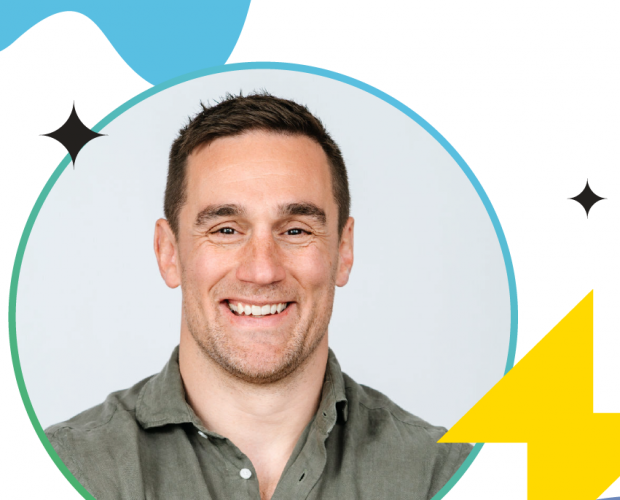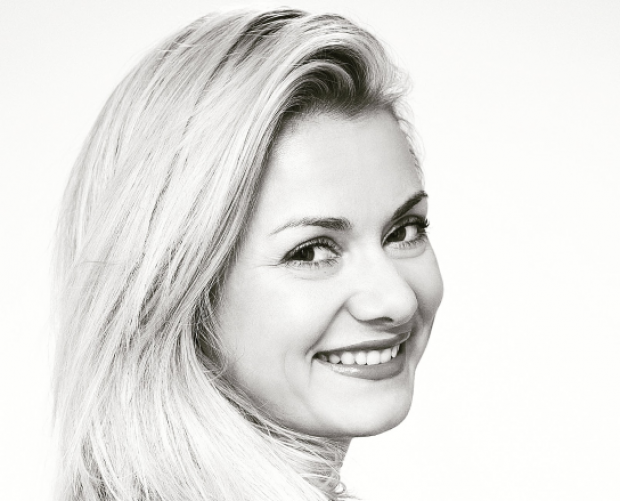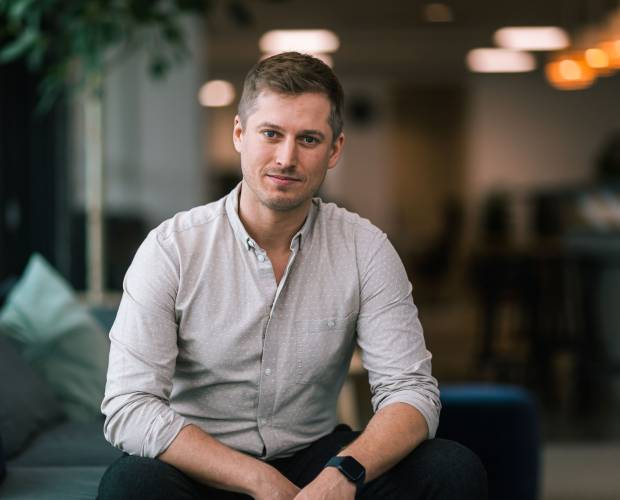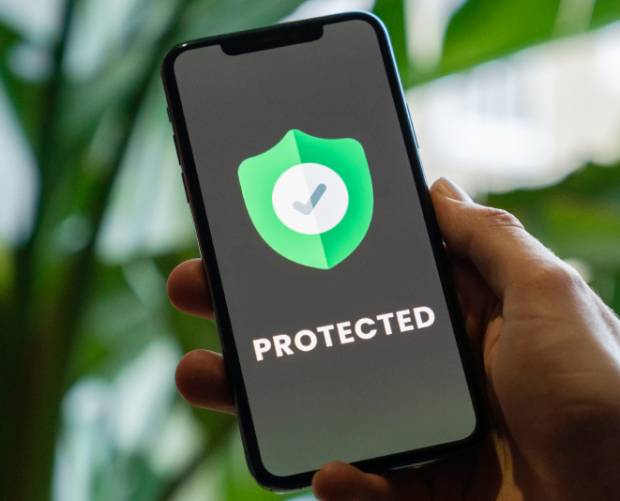Sue Fennessy, Founder and CEO of WeAre8, explains to David Murphy how the social network is trying to give something back to the people on it, and to the planet.
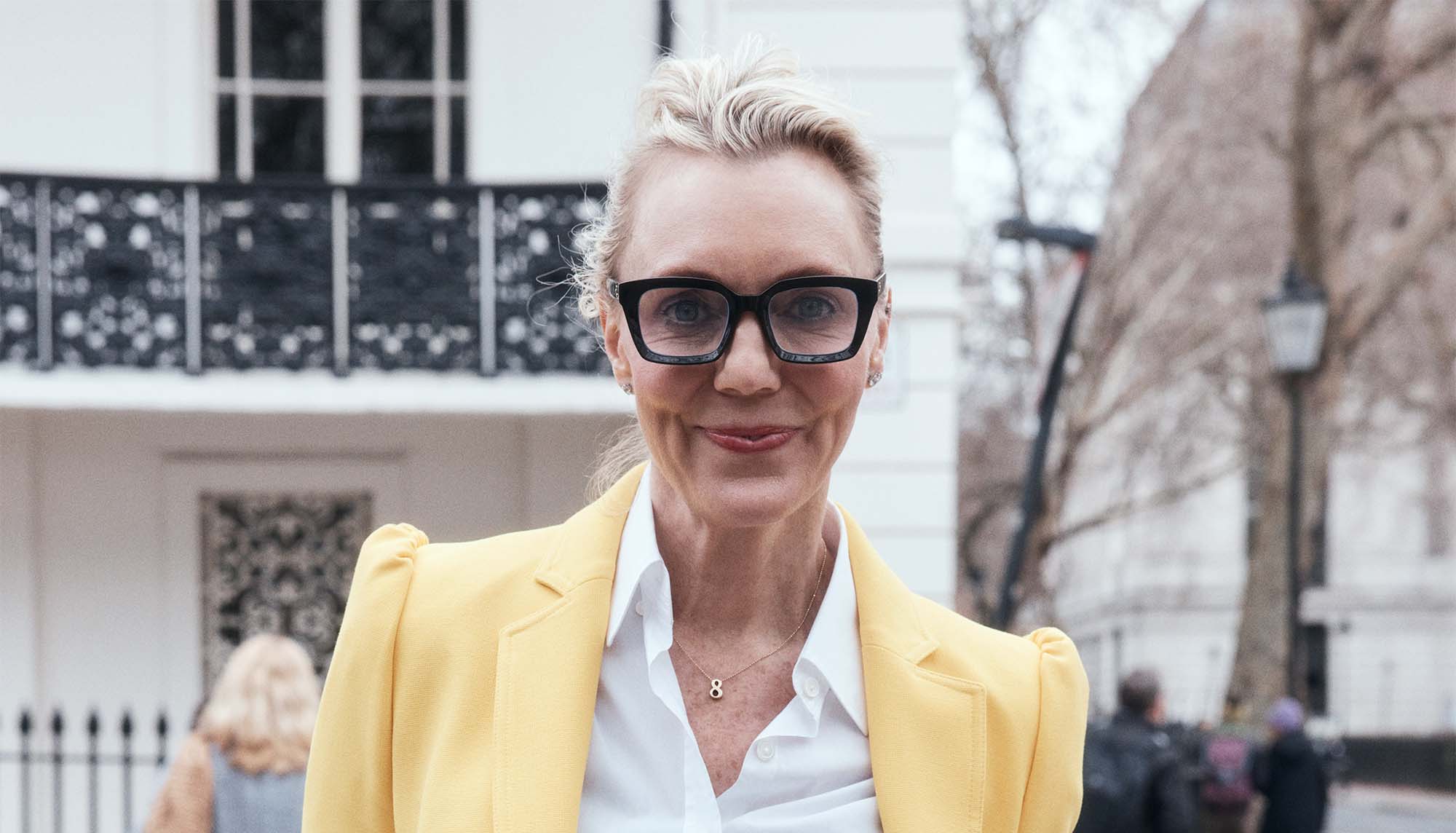 Mobile Marketing: So what’s the background to WeAre8 please Sue?
Mobile Marketing: So what’s the background to WeAre8 please Sue?
Sue Fennessy: So I've spent 35 years in media and technology. I built two companies in Asia Pacific, sold one to Omnicom. And then the second one is a sport media and entertainment business in China. And I realised that media was essentially being traded in the dark and advertisers spent $500bn a year getting their ads in front of people, and there was no visibility. So I built this company called Standard Media Index, where we put systems inside all the media agencies, tracked all the ad spend around the world, and it's used by Omnicom, Publicis, IPG, all the big groups, to track all the ad spend. And for the first time, you could see where all the money's going. So Disney, Warner Brothers, etc., they could see how much their competitors were getting, and they realised that they were leaving billions of dollars on the table with their pricing of advertising distribution. So they can see the price essentially of a Friday night football ad versus anything else.
And when I looked at the macro market, I could see how much was going to television, radio, digital outdoor, how much was going to Google and Facebook, and I just saw over 12 years, all of this money going to Facebook. And the ridiculous thing was, the average engagement rate on a Facebook ad is under 0.4 per cent. So the joke is digital ads, people don't ever want to watch them. They're interruptive, they're annoying. And so what we saw was this quite broken model.
And then at the same time, I thought well, $120bn went to Facebook in 2020, and none of it was shared with the people. And then I sort of felt the economic crisis, the climate crisis, the mental health crisis, all those things fuelled by social media.
So we're focused on two things. The first is, can we reimagine a digital ad, a mobile ad in a way that guarantees someone's attention and leaves them feeling loved, valued and rewarded? So we spent years working with behavioural scientists to do that. So every time you watch an ad on WeAre8, tiny micro payments, go into your wallet, and donations go to charity. And you can use this to pay your mobile bill, your Spotify, or it can go into your PayPal account, but you can also pay it forward to a charity, and 54 per cent of our people do that, supporting around 50 charities.
So we reimagined the ad model in a way that is transformational. So on the WeAre8 app, you'll see this little yellow button, and if you want to watch ads, you tap that and you watch an ad. So when you watch an ad, you consciously accept, bring it on, or you say no thanks. So Nike would love to value you. You tap on that, say yes please. You watch the full ad, you answer a couple of questions and you can click through and learn more, and then tiny little micro payments drop into your wallet and people celebrate you. So it's this beautiful ad model. We’ve built a world where people want to watch ads, and every time they watch an ad they change the world and get little micro payments into their wallet.
The bigger reason for our existing is because around this beautiful ad model we’ve built a social home where you can invite your friends and see your friends in a private feed where it's just your friends, because no one's seeing their friends on social.
The 8 stage is where you follow creators, so our version of the blue tick, like the Twitter/X blue tick is the Golden 8 halos. So you can follow creators. We've got loads of footballers, so Rio Ferdinand's a big investor and partner. We've got loads of artists, actors, creators, musicians. So the 8 stage is where I follow creators, my friends feed is where I follow friends in a private feed, free of algorithms. And then we're launching groups at the end of this month. Then if I feel like watching ads – over 95 per cent of people watch ads every day – they watch the ad and then they get little micro payments into their wallet. So we share 60 cents of every dollar or every pound we get from every advertiser. So 50 cents goes to our citizens, one cent goes to climate projects, four cents goes to a charity of the brand's choice, and five cents to creators and publishers, because all the publishers are getting screwed on social as well.
And as I say, people can pay it forward to a charity or they can use it to pay their Spotify. We've also done an integration with EE where people can use it to pay some of their mobile bill. But we just share money.
MM: Okay, if we could just stick with the ad thing for a minute. I appreciate your motivations for doing this are different from others I have seen in the past, but there have been there have been so many “get paid to watch ads” schemes down the years, and they've all been a bit of a joke really, because the amount of money that you would get paid, you would literally have to watch, you know, like 100 ads a day to make £5 a month. So whenever I hear of anyone talking about paying users to watch ads, I'm always interested to know, how many ads could they see in a typical day, and if they watched all the ads, they could watch how much money would they make from that? None of the other schemes I'm talking about have had this philanthropic element to them, the charitable angle, but the other problem with it is you it feels like you’re targeting a demographic that, if they are that desperate to earn a few cents for watching an ad, have they got much spending power to spend with the advertisers?
SF: So I have obsessed over this for eight years. And by the way we skew high socioeconomic, but let me tell you about the other part of our tech. On one side we've got the WeAre8 app, which is transformational social media that's free from hate, zero tolerance of anonymity, and built to unite a billion people every day to do tiny actions in support of big problems. And people can earn. If you watched ads for five minutes a day, you'd earn about a pound for that. At the moment we're scaling up the advertisers. To date, we've run campaigns with more than 66 clients, including brands like Nike, BayBliss, Co-op, Rexona and Pact Coffee.
Our citizen growth has also been really fast, and it’s going to get faster, because people are coming on here because they love the content, they want to follow people. They want to see their friends in a private feed. We're launching groups, and when we launch groups, it's going to go ballistic. But on the other side of the tech, we've built our version of Facebook Ad Manager, which is a buying engine for advertisers. And it's all self-serve. It's all sustainable, It's beautiful. I've had two ads today. I had three yesterday, so I can earn about 20 to 30p today.
MM: And you have only been offered two to three ads because your demographic only appeals to two or three advertisers?
SF: Were hustling. It’s growing really fast. By the way it skews higher income interestingly, and it works so much better. It drives more attention, it's more sustainable, it's better on every level. But the thing is when it’s pay users to watch ads, and that’s all it is, you get really shit behaviour. As you say, it's exactly as you predict and you get a low skewing group which by the way, there's lots of brands that want to reach those people, McDonald's etc. But on 8, you actively, consciously accept, you watch the ad, you answer questions, but you're doing it in a context of “we're changing the world together. That's why we're really here. And we're on social media that has zero tolerance of hate and it's good for the planet.”
We're really all here because the economic crisis, the climate crisis and the mental health crisis are all interlinked. And it's the sense of injustice, that if we can help people pay their Spotify, their Netflix, their mobile bill and make positive impact every day, then bring it on. So it's the injustice of the big guys, honestly, dividing us through their algorithms, and taking all the money that pisses me off.
MM: So if you're giving away 60 cents in the dollar, you're basically saying “we're going to run this social media network this way. If we did it normally we would make more than twice as much profit as we're going to do, but we're giving up 60 per cent of it.” That is as it is, it's not “well it looks like we're giving 60 per cent back to our citizens, but actually it's only 30 per cent because of whatever.” So that's the figure?
SF: That's right. And we have done the numbers on it. So our margin, transparently, is 21 per cent, and it's a scale place and we deliver cost per completed video view. We're B Corp. We're all about sharing, but we have to be a profitable, sustainable business. But the current world is built on greed. It is disgusting if you saw how much money those companies are making and how greedy and destructive they are.
MM: Fair enough. So if somebody clicks on an ad to watch it and doesn't see it through to the end, the advertiser doesn't pay and they don't get paid?
SF: That’s exactly right. The funny thing is, though, firstly, we don't call people users, we call them citizens, because you have power to change the world. But don't come here to watch ads and get paid. Go somewhere else to do that, I'm sure there's easier ways to make money.
MM: I once heard someone remark that the only other industry, other than the app business, that calls its customers users, is drugs.
SF: That’s so right, David. We're going to look back and go, “oh my God, we as humans, we’re the largest unpaid workforce in human history. What just happened for 12 years?” And so all we’re really about is waking up to our power as human beings to come together. Where the old world divides us, we unite us. Where the old world’s based on greed for them, we’re based on sharing for others. They’re based on hate. We’re based on love and unity. And I think all the things that are transactional, are broken. If they don't have a higher purpose, they're a bit fucked coming out of the gates.
MM: You talked about a Facebook-like ad manager. Would you also go as far as a Facebook Audience Network type scenario? I know it's harder to do now with less people being tracked, but where advertisers could reach your users when they're doing things outside of your app.
SF: So we're collaborating with a lot of people. We've got a big eCommerce play coming up. The old world, one of the things they do is they keep you controlled in it. When you're on 8, if you're a verified creator, you can tap the little link out button and go out to this guy's website or whatever. So in the true spirit of collaboration and freedom, you can take people wherever you want to take them. And so we when you're on 8, we want you to make as much impact as possible, so you can still tweet on Twitter, dance on Tik Tok, but change the world here and from 8, your home base, if you're a creator, you can take them anywhere you want. So, in terms of collaboration, we just want to make creators and publishers as much money as possible, and we want to make citizens as much money as possible. I mean, even influencers aren't making the money that they did even six months ago. And they don't control their audience. So it's a very, very broken model when the big platforms are taking all the money.
MM: And when you talk about the likes of Rio Ferdinand and musicians and athletes, are you only getting into bed with people like that? What about that guy in his bedroom who's doing wonderful stuff, but he's unheard of? And how do they get to be a creator on your app and potentially earn some money? Do they need to have a certain following?
SF: No. In fact, our whole thing is we don't care how many followers you have. So if you go to your profile, go to settings and apply to become a verified 8 creator.
MM: And how many verified creators do you have on the platform at the moment?
SF: We've got about 6,500
MM: Okay. And since when, when did you launch?
SF: Well, we launched about 12 months ago. That said, we've been applying elements to our product all the time. So now we're actively, actively driving forward
MM: While we're on the subject of numbers, what about users and whereabouts in the world are like?
We're just shy of 1m downloads across Australia and the UK. We only launched in Australia six months or so ago, and now we're just putting our foot to the floor with all the marketing because we have the product and all the creators where we want it now. We launched back in the US a few weeks ago, and we're scaling there. So we’re partnered with BBC Studios, Channel 4, and we're about to announce a big partnership with one of the US broadcasters who want us to scale fast, because the current world is so broken.
MM: Okay. And then the hate-free element of it, how does that work?
SF: This has been me putting everything on the line, investing $40m and eight years, because you've got to reimagine the ad model so that it's sustainable. You have to reimagine social. I've got a 65-person tech team, and that's going up against the big guys, So firstly, you can't be anonymous, which is a big thing. We verify every citizen with a mobile phone number, because remember, they are getting paid and they are making donations so they're verified as real people. And they're verified with mobile numbers and all sorts of other things. And then we have AI integrations, video and audio recognition and then we have 24-hour moderation. And then we have community moderation as well.
And there's been one breach and actually it was…because of the construct of the platform, where I have to invite friends and friends have to be connected with me to see my friends’ feed, if you're a random and you post something, you have to have friends on platform for them to see it. You know how the other platforms are automatically public? So our system picks it up, but it means no one sees it. We had one breach. It was picked up and taken down within three minutes. No one saw it because they didn't have any friends, but we also had their IP address and their mobile phone number. And we told the police. Look, we just want to live in a safe, beautiful loving world where we can have differing opinions, but we learn to meet somewhere in the middle. That's where we are.
MM: What's the what's the approach to getting new users? Is it a combination of mainstream advertising, social advertising, user-get-user, or rather, citizen-get-citizen?
SF: So Facebook's thing was, “invite seven friends in the first seven days and you're good”. You know, so the 10-day experience, the first 10-day experience is really important to us. So we're doing a lot of citizen-get-citizen, let's change the world together stuff about to come out. We actually give a shit. And if you don't give a shit, don't come. So “get inspired see your friends, there is an alternative now.” So citizen-get-citizen is big, but that's why we did the deals with Channel 4, with BBC studios, UK TV, Spotify. All these massive media companies are investing in us and partnering with us to give us airtime, exposure. And that's why we're using big talent like Rio Ferdinand and others, plus small creators, our citizens, the TV networks – it's the media mix of all of that happening together that drives collective change
MM: With the media partnerships, is it literally that they're giving you advertising airtime?
SF: They're all really different. Some of them, we’re buying the airtime. It's no different to building anything, right? So we activate our core, we activate our creative base. We incentivize people to invite people. We activate all our creative base and reward them. We partner with publishers and then the big media companies, sometimes they give us airtime, in a lot of instances, yes. But we're also doing loads of other partnerships. So it's a mix between media on-platform and off-platform.
MM: And you say you plan to get 1 per cent of the population using the app by the end of 2023. You're talking global population there?
SF: Yeah, global so we've got 8bn people on our beautiful planet earth, and our goal is to get 80m people taking tiny actions every day in support of the planet. And if we achieve this, it would mean $95m to charity; $23m to climate; and $1.2bn back to our citizens. And then, imagine them paying half of that forward to charity. I mean, even imagine this, David: there's 5m people across the UK that can't get enough food every day. 5m citizens watching two minutes of ads a day paying 25p forward to FareShare, who can get someone a meal for 25p: boom! We've created a sustainable end, and yes, it's not a perfect framework, but we can make massive impact.
MM: Okay, and if somebody wants to come on the platform, but they're not interested in earning money from ads, so they're of no interest to your advertisers effectively, because they're never going to look at an ad, are you cool with that?
SF: I love that Do whatever you want, because do you know what? Remember, I researched this and worked with 12 behavioural scientists to work out if we could build a digital ad model that didn't just get someone's attention, but it made them feel loved. But if they don't want to watch an ad, just come and join the community. See your friends. 95 per cent of people want to watch ads and change the world and get celebrated and make positive impact like that. And pay their mobile bill and Spotify bills. But if they don't want it David, that's fine. Just come here and just enjoy the community.
MM: And that is the proportion of your citizens that are currently watching ads, 95 per cent?
SF: Yes, but as I say, if they don’t want to watch ads, just come here and just enjoy the community. I just can’t see how else we’re going to save our planet or our species actually. I hear every day about the mental health crisis. Kids are scrolling for 4-6 hours a day, isolated in their rooms, and social has fuelled that, and social has fuelled the climate crisis, but it can be more inspiring and more fun than ever. So we’re not saying “get off those platforms,” we’re just saying “come here and feel the love and feel valued, because we’re not in a good place as humans and Mother Earth is screaming for our help, so I’m passionate about it because I can’t see how the fuck else we’re going to get ourselves out of this mess.”

